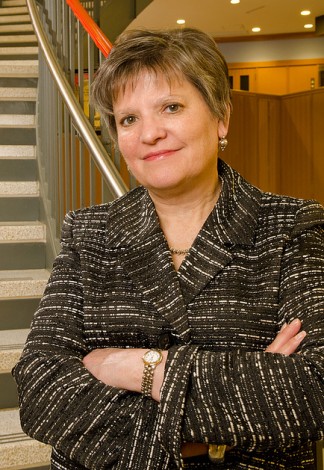 “A library is a collection of sources of information and similar resources, made accessible to a defined community for reference or borrowing.”
“A library is a collection of sources of information and similar resources, made accessible to a defined community for reference or borrowing.”
This lead description in Wikipedia captures the defining role of libraries dating back to early civilizations. Libraries build collections. While Wikipedia does acknowledge the advance of digital libraries and the rise of the internet, it offers little to explore the visible expansion of roles for libraries in a digital age. Does Wikipedia, a globally edited resource, provide up-to-date and trustworthy information on this topic?
In recent decades, library collections have changed dramatically. The University of Minnesota Libraries currently includes hundreds of thousands of e-journals and e-books, as well as myriad other types of digital content ranging from images to maps to simulations. Libraries staff members also play an important role in helping users find relevant content, wherever it might exist. Increasingly, too, our Libraries’ experts are involved in all phases of our students and faculty working with information resources — whether it is effectively (and legally) using content for research and teaching, creating new content, or sharing it through online publishing venues. Simply put, the Libraries represents more than the collection; we encompass a group of experts who can help make sense of a very messy universe of information sources and services.
This issue of continuum explores Libraries expertise and campus partnerships where Libraries experts are making a difference.
In Making College Life More Affordable, you’ll read about the Libraries’ role in working with faculty to find and evaluate content for the courses they teach, with an eye toward reducing the cost of course-related materials for students. We’re extremely proud of the result — potentially saving students $1.3 million during the last academic year! There’s no single silver bullet here, but rather a mix of efforts that include: helping faculty identify high quality, freely available content, investing in campus-wide licenses for e-books in lieu of individual student purchases, creating custom-designed digital course packs, and supporting the creation of new educational content that can be openly shared.
Information Accelerates Innovation captures a highly productive partnership, with our librarians helping inform the process of potential commercialization of health-related discoveries. Developing a business case for a new discovery requires a well-researched understanding of the marketplace, exploring the research literature as well as the commercial potential. As one of the participant faculty in the MN-REACH project notes: “I had no idea where to start to find this type of information and which sources are credible.”
Digital technologies have also afforded a new capacity for creating and sharing new content. In response to growing demand for publishing services to support works created at the University, the Libraries has expanded its service portfolio. Driven to Publish shares news of our new Open Scholarship and Publishing Services. Among the many exciting projects is Open Rivers, a highly interdisciplinary, dynamic, multi-media publication created by the U’s Institute for Advanced Study. Check it out!
There’s a common thread in these examples — the Libraries is an expert, trusted partner. Time to edit that Wikipedia article…
—Wendy Pradt Lougee
University Librarian
McKnight Presidential Professor

